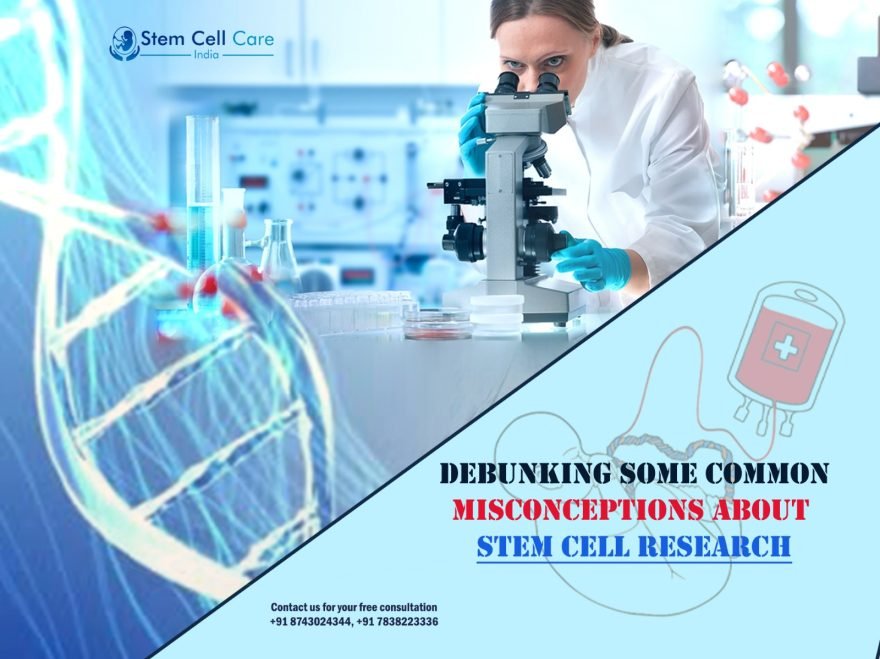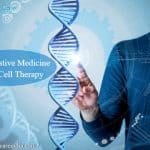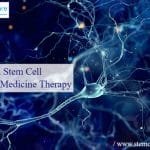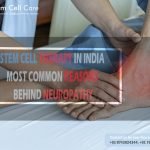Table of Contents
Over the years, stem cell research has drawn a lot of attention because it holds so much promise for the future of medicine and regenerative therapies. However, it does suffer from its fair share of misconceptions. We hope to dispel some of the most widespread myths about stem cell treatment in Delhi.
By shedding light on the facts, we hope to foster a better understanding of the ground-breaking area of scientific exploration.
About Stem Cell
Undifferentiated cells called stem cells have the amazing capacity to differentiate into a variety of specialised cell types throughout the body. They have the capacity to divide and specialise into particular cell types, including blood cells, muscle cells, and nerve cells, among many others.
Two primary types of stem cells:
1. Embryonic stem cells: These embryonic stem cells come from in vitro fertilisation (IVF)-produced embryos, which are the most common method of producing embryos. Because this stem cell is pluripotent, it can give rise to cells from each of the embryo’s three germ layers, which eventually give rise to all the body’s tissues and organs.
2. Adult stem cells: These stem cells, sometimes referred to as somatic or tissue-specific stem cells, are located in a variety of tissues and organs throughout the body, including the bone marrow, brain, skin, and liver. Adult stem cells can differentiate into a small number of cell types within a particular tissue or organ because they are multipotent or occasionally unipotent.
The use of stem cells in medical research and treatment has enormous potential. They can be used to research the onset and course of diseases, evaluate the efficacy and safety of novel medications, and perhaps even treat certain ailments. For instance, stem cell therapy has the potential to replace diseased or injured tissues in conditions like spinal cord injuries, heart conditions, Parkinson’s disease, and some types of cancer. You can visit your nearby stem cell clinic in Delhi or any other location for better knowledge or experience.
Benefits of Stem Cell Treatment
As an innovative invention in medicine, stem cell therapy now offers fresh hope for treating a variety of illnesses and disorders. Because of their exceptional capacity for regeneration, stem cells are an important tool for healing and regenerating harmed tissues.
Let’s explore the wide range of advantages that stem cell therapy offers:
stem cell therapy
1. Tissue regeneration
- The unique capacity of stem cells to differentiate into a variety of specialised cell types present in the human body. This quality lays the groundwork for tissue regeneration, making stem cell therapy a possible treatment for a variety of ailments.
- Stem cell therapy has enormous potential for repairing and replacing damaged cells and tissues, ultimately restoring functioning to impacted areas.
2. Reduce the risk of rejection
- Unlike traditional tissue transplantation, stem cell treatments can be derived from the patient’s own body, reducing the risk of rejection. By utilising autologous stem cells obtained from sources such as bone marrow or adipose tissue, there is a minimal chance of the immune system rejecting the treatment.
- This personalised approach not only enhances the effectiveness of the therapy but also eliminates the need for immunosuppressive drugs, minimising associated complications.
3. Treatment for degenerative diseases
- Patients with degenerative diseases including Alzheimer’s, Parkinson’s, and multiple sclerosis have new hope due to this treatment. Researchers and medical professionals are looking at ways to slow down or even reverse the evolution of various illnesses by using the regenerative capacity of stem cells.
- These cells have the potential to be a game-changer in the treatment of these difficult diseases because they can repair damaged cells, have neuroprotective properties, and encourage the synthesis of vital growth factors.
4. Accelerated healing
- Injury recovery and wound healing can be significantly expedited through stem cell therapy.
- Stem cells can enhance the body’s natural healing processes by stimulating the growth of new blood vessels, reducing inflammation, and promoting tissue regeneration.
The Common Misconception of Stem Cell Research
There is a wide range of myths about stem cell research across the world. While stem cell treatment in Delhi holds great promise for treating various diseases. It has also been plagued by numerous misconceptions and understandings. Below we will go through some of them:
Myth: Stem cells research is synonymous with embryonic stem cells
Fact: while embryonic stem cells are one type of stem cell, they are not the only ones. Adult stem cells induced pluripotent stem cells, and umbilical cord stem cells are also extensively studied. Scientists have made significant progress in utilising these alternative sources, reducing ethical concerns associated with embryonic stem cells.
Myth: Stem cell research involves the destruction of human embryos
Fact: while embryonic stem cell research does require the use of human embryos, these are usually obtained from fertility clinics with informed consent. Additionally, recent advances have led to alternative methods of deriving pluripotent stem cells, eliminating the need for embryo destruction.
Myth: Stem cell research is prohibited in many countries due to ethical concerns
Fact: the regulations surrounding stem cell research vary from country to country. While some nations have imposed restrictions, many countries, including the United States, Canada, and several European nations have established frameworks that allow stem cell research within the right boundaries.
Myth: Stem cell research has not yielded any significant medical breakthrough
Fact: it has already contributed to numerous medical advancements. This research has played a vital role in developing treatments for various conditions, such as leukaemia, spinal cord injuries, and heart disease.
Myth: Stem cell therapies are unregulated and potentially dangerous
Fact: regulatory bodies, such as the U.S. The Food and Drug Administration (FDA), closely monitors stem cell therapies to ensure safety and effectiveness. While some regulated clinics may offer unproven treatments, authorised stem cell therapies undergo various testing and clinical trials before they can be approved for widespread use.
Wrap It Up
To promote informed debate and decision-making, it is essential to clarify general misconceptions about stem cell research. The stem cell clinic in Delhi treats many lives through this treatment, which holds incredible promise. Stem Cell Care India can make sure that the advantages of stem cells are realised while addressing concerns by being aware of the facts and supporting rights.
Contact us for more information about stem cells and their treatment to cure other diseases.





